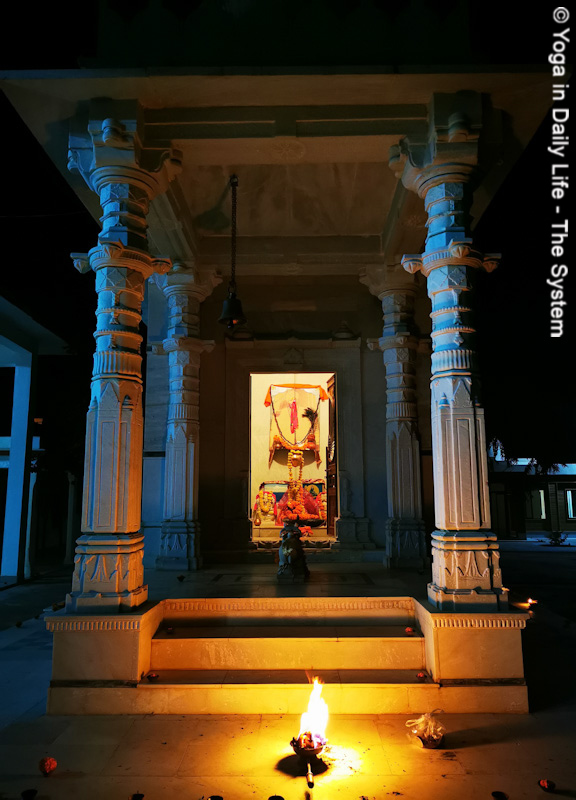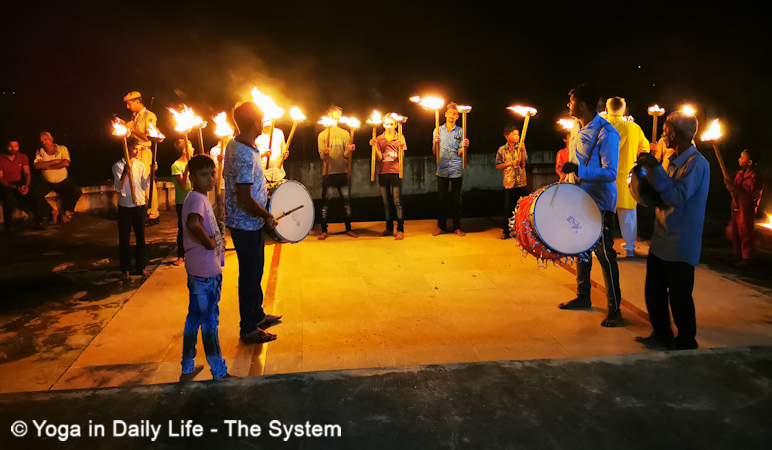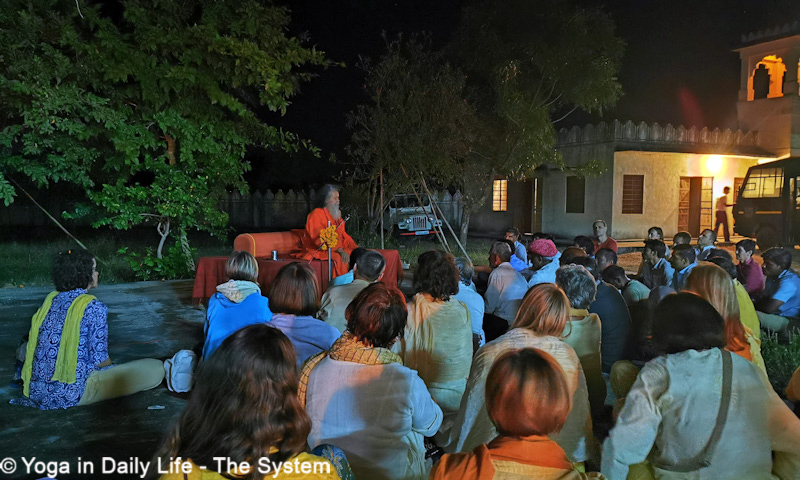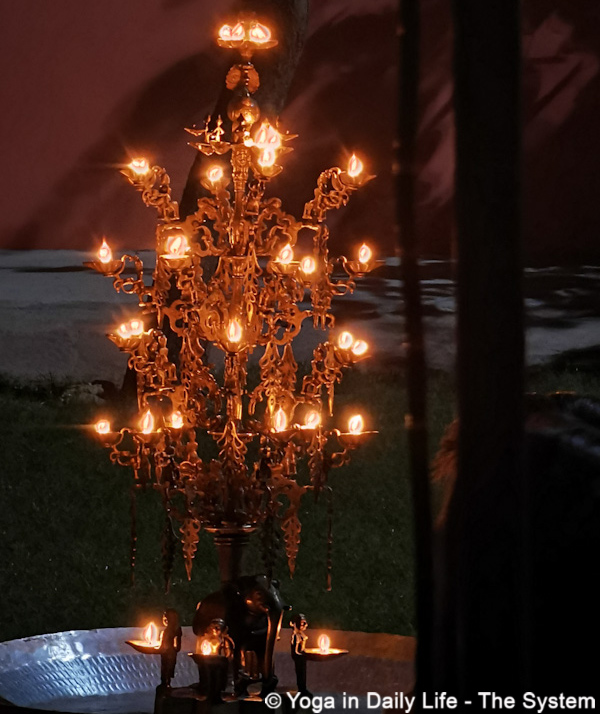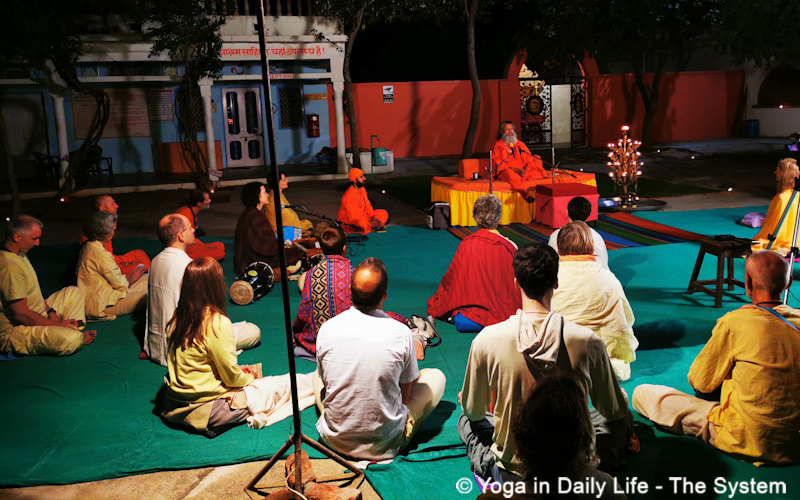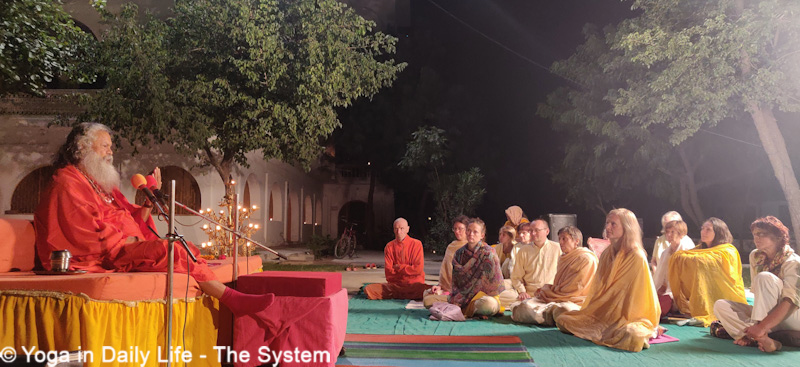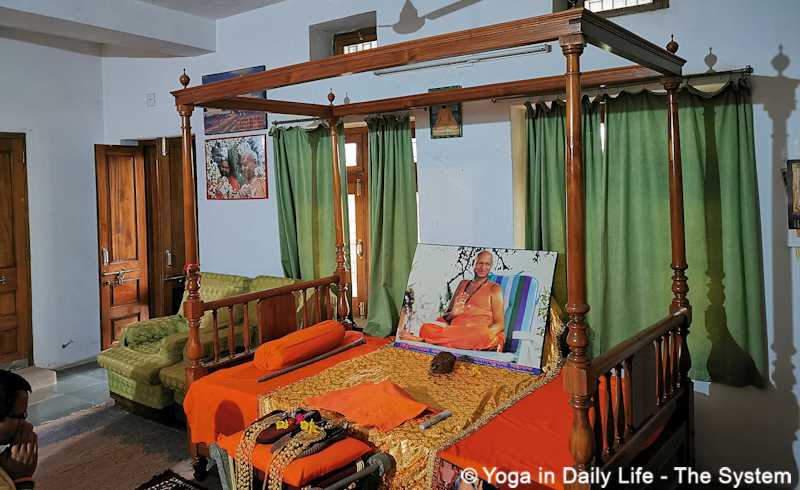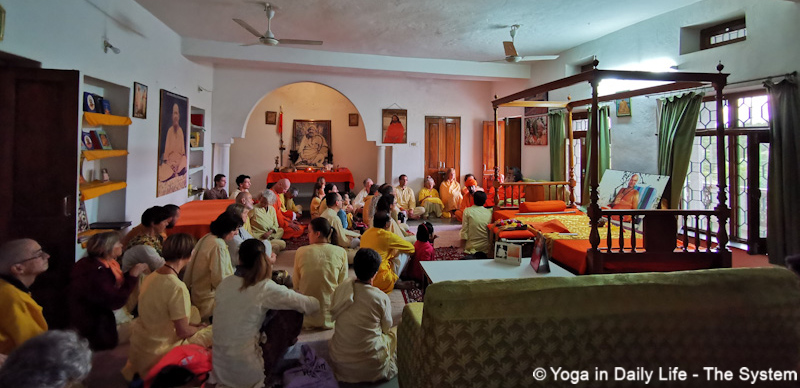Diwali celebrations in India
26-28 October 2019
Three days of celebrating the light in Nipal and Jadan Ashrams, Rajasthan, India.
Traditionally each year, Vishwaguruji visits Nipal Ashram one day before the holy festival of Diwali. In the evening, the ashram was decorated with many ghee lamps and flowers. Many local villagers came across the bridge to the ashram with lights and drums to receive Vishwaguruji's blessings and satsang on Diwali for the spiritual New Year.
Diwali is one of the greatest and most popular Indian festivals. It is the 'festival of light' that celebrates the victory of light of knowledge over spiritual darkness. 'Deepawali' literally means a series of oil lamps (diyas or deepaks) and it is celebrated on day of Amavasya — new moon day in the Lunar Calendar month of Kartika (October/November). In Treta Yuga (the Third Age) Lord Rama, the incarnation of Vishnu, victoriously returned to Ayodhya on that day, after 14 years of being in exile. The citizens of Ayodhya garnished the city with flower malas, spread flower petals across the streets, decorated their houses and lit oil lamps to illuminate them.
For Yoga in Daily Life, the day of Diwali has even more significance. On Diwali day in 1828, at brahma muhurta (dawn), Srimati Chandan Deviji gave birth to the protector of all creatures on this Earth — Bhagwan Sri Deep Narayan Mahaprabhuji.
In his Diwali satsang in Jadan Ashram, Vishwaguruji reminded us all that there are many religions but only one God. God is called by many names, Hindus say 'Brahman', Muslims say 'Allah', Christians say 'God' or 'Father' — but ultimately, all are coming to only one gate, since there is only one Light and Truth, one Creator, who created the whole universe and all beings.
Therefore we should live together in harmony and understanding, and respect the beliefs and spiritual paths of everyone. Festivals such as Diwali and Christmas exist for all to come together and create love and harmony.
Vishwaguruji said that, especially at this time, mankind needs divine mercy, protection and peace; and for this, we shall pray and spread the message of brotherhood, tolerance and reconciliation towards all nations, cultures and religions.
The day after Diwali is called Lakshmi Puja and the traditional greeting on that day is "Ram Ram Sa". After breakfast, the group joined Vishwaguruji in receiving darshan (blessed presence) of Holy Guruji's residence in the old accommodation building of Jadan Ashram, where he lived for many years, meditating and practising mantra japa for the blessing of the whole world.
